Disclosure: This page may contain affiliate links, meaning we receive a commission if you decide to make a purchase through our links, but this is at no additional cost to you. Please read our disclosure and privacy statement for more info.
While the stresses and hardships of work affect all, signs point to significant pressures faced by those working through the night leading to early critical health problems. But is it all doom and gloom?
Night shift can take a serious toll on your health and well-being if it’s not prioritized. This is mainly due to sleep deprivation and stress but also due to the risks associated with each specific night shift job. Understanding your potential dangers and acting purposefully to minimize harm is key.
Now, before going on Amazon to do a little coffin shopping (after all, funeral homes are closed to you at midnight,) there is a tad more to this question than it might seem. If you or a loved one has decided to forsake daylight, read on to be assured it isn’t necessarily a death sentence.
Do Night Shift Workers Suffer More Health Risks?
While we’ve covered this before here, Does Night Shift Shorten Your Life? 10 Impacts of 3rd Shift the answer is yes, on average, midnight shifts tend to take a toll on one’s health.
Be it sleep deprivation, circadian rhythm, stress, loneliness, or werewolf attack, the average night work employee faces a tough road at times.
While this may seem like a health emergency that should necessitate the closing of society every night when the sun goes down, we might be able to avoid that with a little preparation and counteraction.
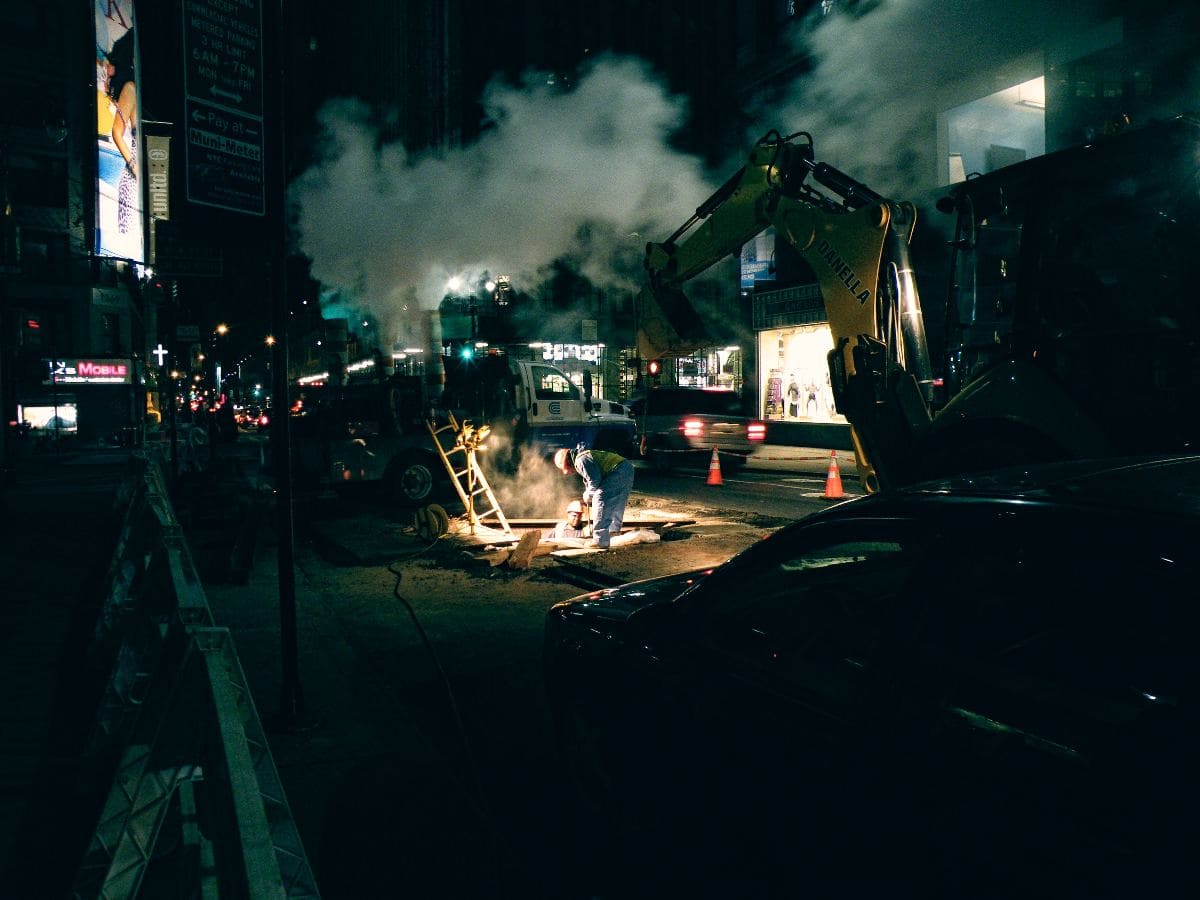
What Type of Factors Affect These Health Risks?
Well, the first step is to know the problems faced by each individual worker. After all, a soldier in a war zone pulling night sentry duty probably faces vastly different risks than a motorized sanitation engineer (street sweeper.)
The sweeper likely isn’t taking heavy fire and the soldier hopefully isn’t dodging angry raccoons when moving a box.
Once you know your career, you can research the challenges faced by that particular vocation, for example:
Police Officers, Firefighters, Paramedics
First responders will face many issues when working the streets at night. For one, it is simply more dangerous in the dark. Crime, violence, traffic hazards, and alcohol use are just a few of the factors that make the night shift of these professionals problematic.
These shift difficulties are hard to counteract, simply because they are characteristics of living in a society.
So, while first responders can try to overcome these risks by maintaining situational awareness at all times, there is only so much you can realistically do.
(On a side note, we wrote another article about the day in the life of a police officer if you’re keen to learn more about our heros).
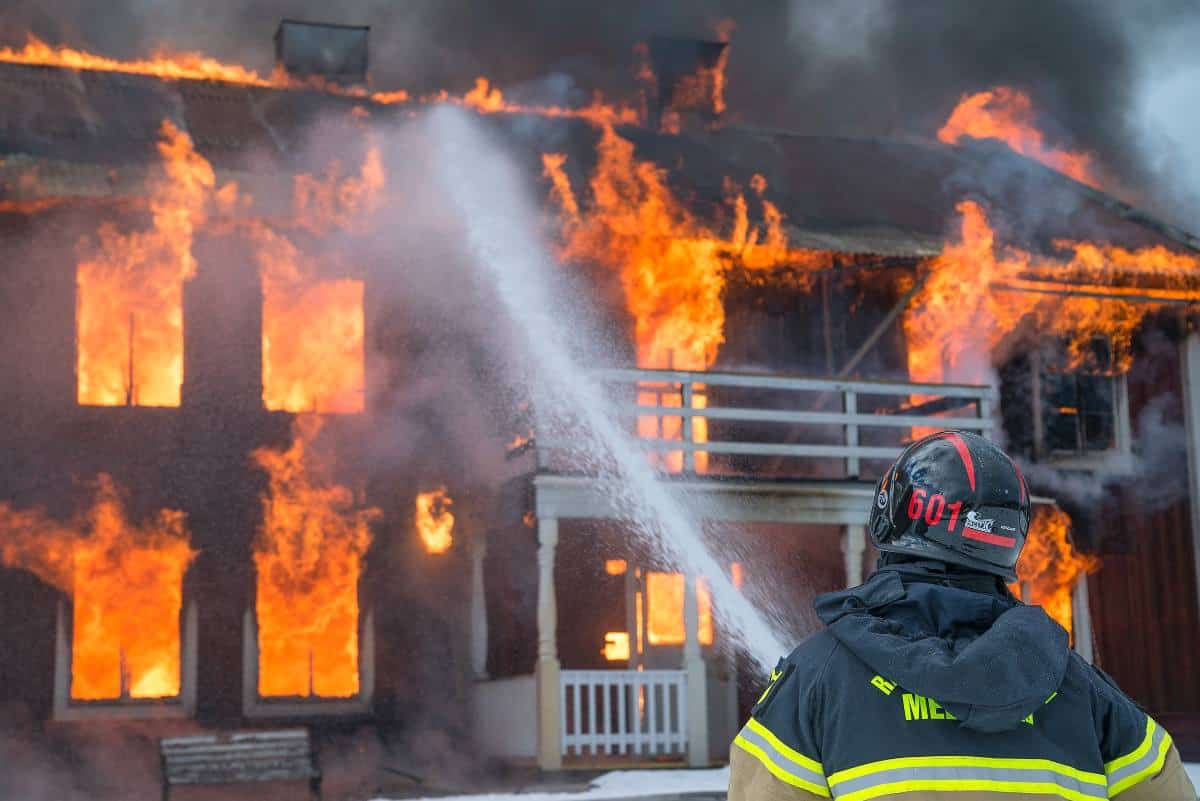
Nurses, Doctors, Medical Professionals
Nurses, and other hospital staff face difficulties along the same vein as first responders. As the night is more dangerous, it stands to reason the Emergency Room will be busier. The problem comes when night shifts are usually understaffed, increasing the responsibilities of those who are in place.
Add to that the practice of staffing the night shift with less experienced workers, and an already stressful job gets worse.
The patient demographic is often more, let’s say, vibrant at night which requires more hands on deck Trying to wrangle these patients and their support army is tough, particularly when sleep-deprived due to rotating shifts.
If there any new nurses here, Em produced a ripper guide for new nurses which I highly recommend you get your hands on. You can check it out here.
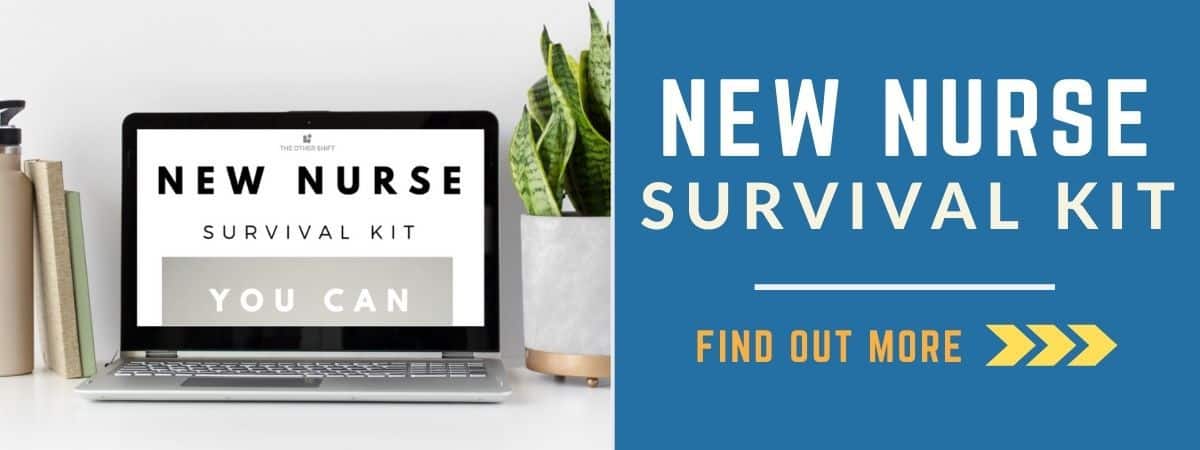
Bartenders, Waitstaff, Entertainment Workers
This one’s all about the booze. As people get drunker, they surprisingly can get belligerent, combative, and abusive (shocking, I know.) If that weren’t bad enough, keep in mind they are doing so surrounded by glass, chairs, silverware, and other drunken reprobates (who probably think the first guy is looking at ‘im funny.)
As insurance rates have increased, many bars and nightclubs have little to no onsite security, and bartenders usually are tasked with breaking up any scuffles.
Bartenders also face surprising risks usually reserved for athletes and typists, as well as bizarrely terrifying, fruit-related diseases (I’m not kidding, it’s called Margarita Burn. It’s a thing.)
Entertainment Workers
This one may sound redundant, but I’m referring to entertainment of the, shall we say, more unwholesome type. Besides alcohol, these staff face all the risks of bartenders and waitresses with the added bonus of stalkers, creeps, and fellows who live with a mannequin head that tells them to do things.
These entertainers normally enjoy a degree of protection on the premises, but once they pull out of the parking lot, a lot of sad stories begin.
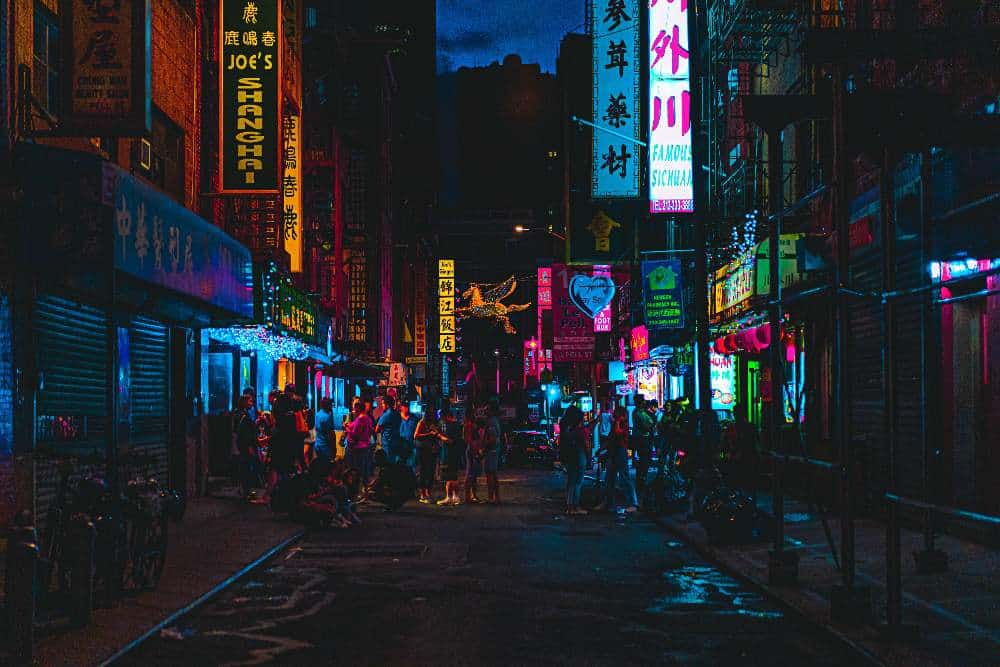
Convenience Store, Gas Station
These luckless souls get to deal with the violence, alcohol, and general mayhem of the night without the weapons of the police, the respect of the bartender, nor the big bouncer named “Pain Wagon” that escorts the dancers out of the club. These brave lads face robberies, psychopaths, drifters, and goblins (well, probably not goblins.)
Besides these lovely thoughts, they also get to deal with maintenance problems, hazardous cleaning chemicals, and in the case of gas station attendants? A literal lake of flammable liquid under their feet.
We wrote an entire post about the humble gas station attendant. I learned a thing or two in the research of this post!
Industrial Workers
One thing that makes being tired, drained, or slightly off-kilter a bit more exciting is the presence of modern factory equipment. Giant blades, blast furnaces, miles of electric cables, soulless robots bent on world domination (I’m only half kidding on this one,) and molten metal all are dealt with on the average midnight shift. Producing anything is likely a life-risking process.
Whether the springs in a bed to the very breakfast donut, at one time, all things exist in a perpetual attempt to slaughter us all. Steel springs were once molten slag as donuts are fried in boiling lard (tasty, tasty lard.)

Can Anything Be Done to Negate These Risks?
Of course. Whereas common dangers can be overcome by traditional methods, risks or hazards specific to a particular career can be confronted as well.
If the danger is one of violence, self-defense techniques are always a good idea. If one trains in martial arts, boxing, or any other combat-related sport, they get the added bonus of exercise.
Just a few lessons can vastly increase your self-confidence, which makes you less of a target. Even if the goal is to avoid conflict altogether, knowing you could hold off an attacker can help immensely. Violence is also combatted by one secret, failsafe way.
Alcohol-related difficulties can be eased by getting trained in dealing with such events. Entire classes, courses, and certifications revolve around the possibility of better controlling an alcohol-induced problem. Ranging from limiting service to drinkers to deescalating conflicts, these professional classes usually have free counterparts available on YouTube. A ten-minute video on your iPhone certainly beats learning how to walk again after some horror show goes upside your head with a pool cue.
Industrial accidents are in a class all their own. Liquified metals cannot be reasoned with nor threatened. A jujitsu flip will do little to help if 5,000 gallons of premium gasoline decide to vastly increase their temperature. In these instances, proper adherence to safety guidelines is your only hope. Prevention of accidents is simply the best defense against them. Keep yourself well rested, aware, and respectful of the power of the environment around you will go far to keep you from becoming part of the bumper of a new Honda.
Finally, if you deal with the public as a convenience store clerk after midnight? Bulletproof glass, a flak jacket, and holy water might come in handy. Failing that? You have a panic button and door locks. If you feel a customer is potentially dangerous, don’t feel ashamed to protect yourself. Better to feel like a fool in an hour than feel room temperature in ten minutes.
So, is it Worth it?
Keep in mind all the risks and hazards you overcome will usually be taken into consideration when you negotiate your hiring.
Midnight shifts tend to pay a premium, using the time-tested method of throwing money at a problem until it no longer remains one.
Perhaps you enjoy the quiet that comes at night. Not driving in traffic is always neat, like having an entire road all to yourself (and possibly a few drunk drivers, so keep your eyes on the rear-view now and again.)
Finally, the inescapable fact that most night shifts are entry-level positions. The sad truth is for some people, a night shift is the only option. There is nothing wrong with this, mind you, plenty of good, honest work gets accomplished in the dark, and it’s not always shifty-looking men with Tommy guns and fedoras (though it looks really cool when it is.)

In Closing…
Night shift work ranges from highly specialized, necessary careers that fuel society to a solitary college kid in a shack selling a pack of gum at 03:00 through a half-inch of plexiglass. It has many detriments and ailments specific to those who work it, as well as benefits and bonuses. Weighing the two and coming to a conclusion as to the worth of the position will depend on the worker.
The point is that the worker must be aware that while some risks to both physical and mental health exist, they can be overcome. They must also come to the simple realization that some risks simply can never be negated. It’s a simple truth of risk versus reward. The only realistic response is to weigh the benefits and detriments and make an informed decision.

Disclosure: This page may contain affiliate links, meaning we receive a commission if you decide to make a purchase through our links, but this is at no additional cost to you. Please read our disclosure and privacy statement for more info.
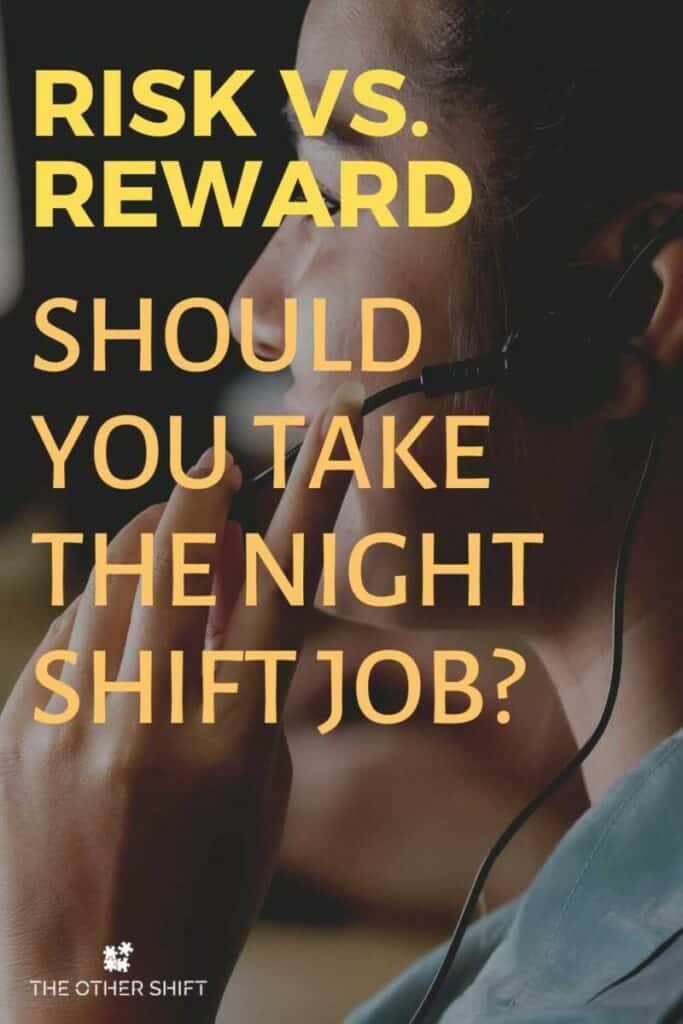
Recent Posts
An examination of the night shift professions, that while sometimes underappreciated, are necessary for civilization, in its current form, to exist. A city can be thought of as a machine. Each...
Culminated from an exhaustive yet well-funded journey into the night, this article will prepare you for life outside of work while being a denizen of the dark. During days off, night shift...

